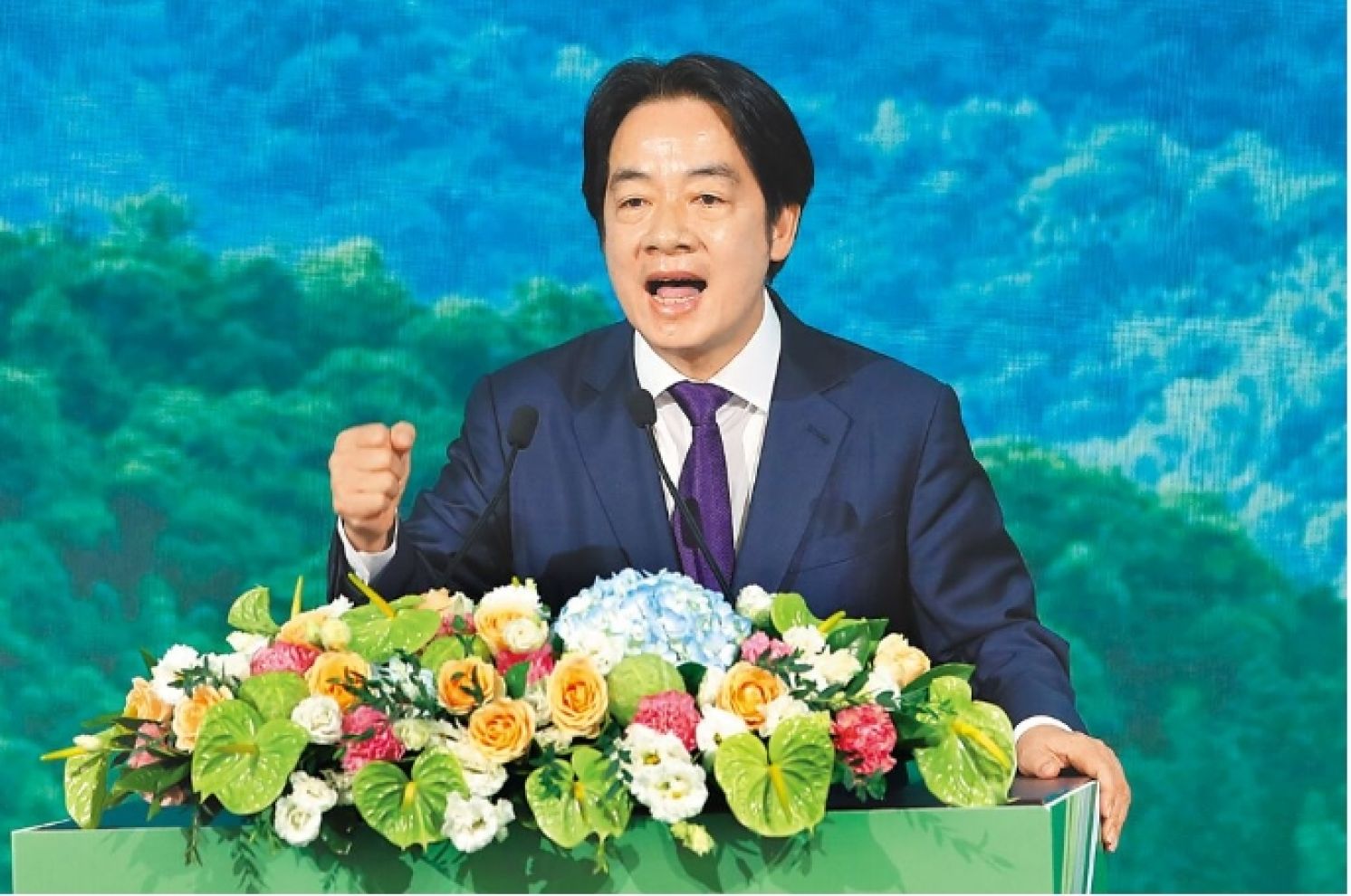
President Lai: Build Taiwan-Centric National Identity
China Times, July 22, 2024
At the National Congress of the Democratic Progressive Party (DPP) on July 21, President Lai Ching-te, who also serves as party chairman, delivered his entire speech in Taiwanese, emphasizing building a “Taiwan-centric” national identity. He stated that the 23 million people living in Taiwan form a shared destiny and that national identity should no longer be a source of external division or internal conflict. Scholars argue that Lai's focus on a Taiwan-centric national identity undermines the DPP's 16 years in power, suggesting a denial of their governance achievements.
The DPP held its National Party Congress at the Taipei International Convention Center, marking President Lai's first appearance as both party chairman and national leader, signaling the start of his era.
Lai, facing internal dissent within the DPP and from pro-independence groups, frequently spoke in Taiwanese during events such as a February 18 video call with the American Taiwan Association and a May 21 inauguration tea reception for overseas compatriots. At yesterday's national congress speech, he again demonstrated fluency in Taiwanese, initially mentioning the Legislative Yuan as facing its greatest challenge in nearly two decades.
Lai outlined three major goals for the party, starting with establishing a Taiwan-centric national identity. He emphasized debunking the misconception that Taiwan serves as a base for retaking mainland China, asserting a Taiwan-first national policy in honor of democratic predecessors who laid bare this false belief. He stressed their responsibility to unite the people, resist annexation, and safeguard national sovereignty, urging full efforts to promote awareness of Taiwan's unique history and culture.
While the DPP previously advocated for abolishing the Control and Examination yuans, Lai had once described the Constitution of the Republic of China as disastrous during campaigns. However, his second key point in yesterday's speech focused on deepening democratic constitutional systems and maintaining a separation of powers to prevent centralizing authority. He highlighted the necessity for establishing authoritative constitutional norms and consensus, asserting that healthy party politics are impossible without them.
Lai emphasized that a democratic nation doesn't fail due to the impulses of one person or a minority but rather through long-term neglect or rejection of constitutional norms during partisan struggles, slowly eroding democracy and potentially leading to national failure.
Finally, he underscored the protection of freedoms and human rights. Lai stressed the current responsibility to prevent the abuse of freedom of speech, continue judicial reforms, and safeguard people's housing rights against speculation.
KMT Legislator Lo Chih-chiang criticized President Lai's remarks, noting the absence of the Republic of China once again, reflecting Lai's own contradictions. Lo suggested that while Lai dislikes the R.O.C., he hesitates to declare legal Taiwan independence outright and instead opts to avoid mentioning the R.O.C. deliberately, indicating his "psychological Taiwan independence."
Lo sarcastically remarked that when a national leader's discourse is reduced to ideology and nationalism, it signifies a desire to eliminate dissent and concentrate power. He characterized Lai's notion of "Taiwan first" as prioritizing his own ideology, viewing any refusal to accept Lai's definition of national and cultural identity as divisive.
According to KMT Legislator Lin Te-fu, President Lai is effectively promoting Taiwan independence. As president, Lai should not sow division or foster confrontation. Lin emphasized that the Republic of China is a sovereign independent country, and the R.O.C. Constitution clearly denotes this, not Taiwan. He criticized Lai for seeking constitutional interpretations to confront the opposition while repeatedly making statements supporting Taiwan independence, which he deemed inappropriate.
Tso Chen-dong, a professor of political science at National Taiwan University, opined that Lai’s speech raises three concerns. First, despite the DPP advocating Taiwan independence since its founding over 30 years ago and having governed for 16 years, Lai's assertion of Taiwan lacking a "Taiwan-centric" national identity is seen as undermining the DPP's governance.
Second, Tso noted a regrettable omission in Lai's speech concerning the core of democracy and freedom, which embraces diverse values. Last, he emphasized that besides a Taiwan-centric national identity, there is a crucial need for love and dedication towards the Republic of China. He expressed concern that promoting Taiwan independence and denying the legitimacy of the R.O.C. could pose a crisis for Taiwan.
Tso straightforwardly questioned whether the future generation would defend the country with love and dedication towards the Republic of China, given Lai’s omission of any mention of the R.O.C. in his discussion of national identity as Taiwan's president, which he considered a dereliction of duty.
From: https://www.chinatimes.com/newspapers/20240722000476-260118?chdtv